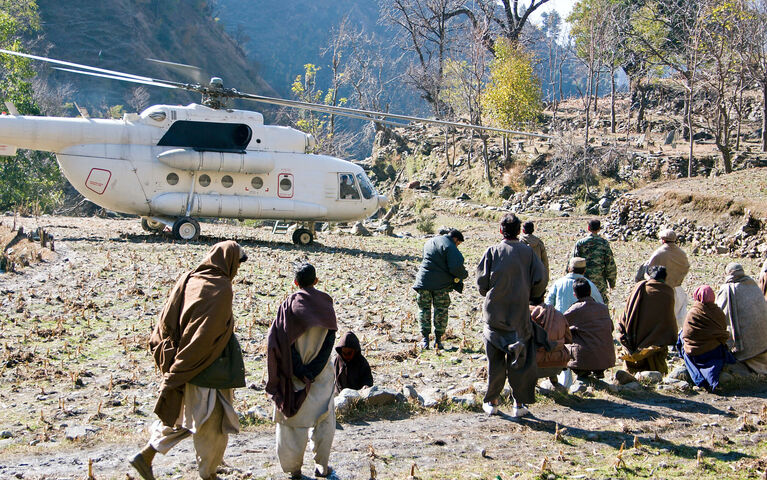- Tuition Fees: General Admission €1,500, tropEd €1,000
- 2-week course equals 90 hrs of student investment time (40 hrs of lectures, 30 hrs of group work and 20 hrs of self-study), TropEd students can earn 3 ECTS points
- Open to: tropEd students, public health professionals and other health professionals
Entry Requirements
This course is held in English. Course participants should have excellent command/high level of proficiency in reading, writing and speaking English.
Content Overview
This course focuses on understanding health and health system impacts as well as health care needs in natural disasters (e.g. floods, earthquakes) and complex emergencies (e.g. armed conflicts). It looks at the role of public health in disaster situations, disaster preparedness and response, needs assessment me-thods and prioritisation. This course aims to create awareness about the relief and development context in which international organisations work as well as the driving forces and determinants of inter-agency coordination in the field.
Course Topics
- Disaster situations,
- Disaster preparedness,
- Development programmes,
- Cross-cultural awareness,
- Gender based and sexual violence,
- Working relations in the field, donor coordination,
- Relief to development continuum,
- Applied epidemiology in needs assessment and
- Relief planning for natural disasters and complex emergencies.
Learning Objectives
At the end of the course participants should be able to:
- explain the health and health systems impacts of disasters
- explain the importance of addressing gender based violence and mental health impacts
- differentiate between natural disasters and complex emergencies in terms of health impacts and needs
- apply rapid needs assessment methods and prioritization in disaster situations
- use strategic and operational planning and health management tools in disasters
- apply epidemiological methods in disaster situations
- explain the driving forces and determinants of inter-agency coordination in the field
- distinguish between development-oriented humanitarian aid and mainstreaming preparedness in development policies
- identify methods for quality assurance and minimum standard setting in humanitarian aid
- apply socio-cultural aspects in the field work appropriately
Schedule & Certification
Most of the short courses require full-time attendance from Mondays to Fridays, 9am - 5 pm. Of Fridays courses generally finish around noon If not stated otherwise, all classes and activities will also run on public holidays.
Students and course participants must attend full-time and successtully complete all the assessment components in order to receive a certificate of attendance or a grade report from Heidelberg University. tropEd students will be able to credit short courses towards the Master's programme at their home institution.
Course Fee
- General Admittance: € 1.500.-
- tropEd students: € 1.000.-
Included in the course fee is a non-refundable registration fee of € 200.-
Please register as soon as possible as the number of participants is limited.
Unfortunately, no Scholarships are available.
If the participant withdraws from the course
- less than 6 weeks prior: 25 % of the course fee will be charged.
- less than 4 weeks prior: 50 % of the course fee will be charged.
- less than 2 weeks prior: the whole course fee will be charged.
The tuition fee does not include accommodation, insurance or other personal living costs during the stay.
Contact
For any questions please contact our short course programme team:
Anne-Kathrin Fabricius, M.A.
Short Course Programme Manager
Tel: + 49 - (0) 62 21 - 56 41 49
anne-kathrin.fabricius(at)uni-heidelberg.de
Short Course Programme Assistant
Tel: + 49 - (0) 62 21 - 56 46 48
assistants.sc(at)uni-heidelberg.de
Course Coordinator
Dr. Revati Phalkey,
Heidelberg Institute of Global Health,
Heidelberg University

